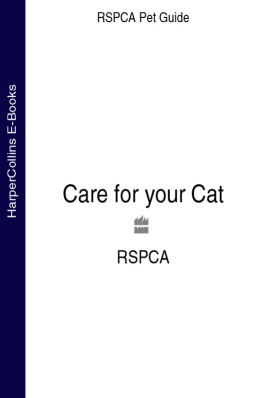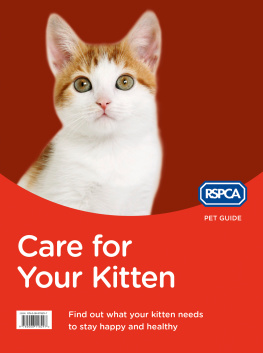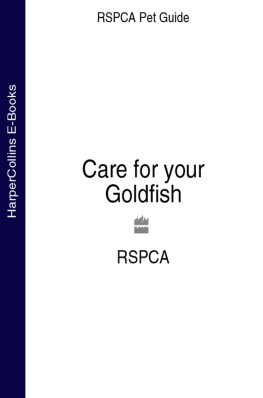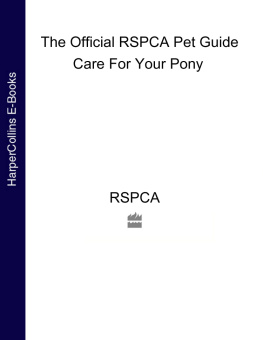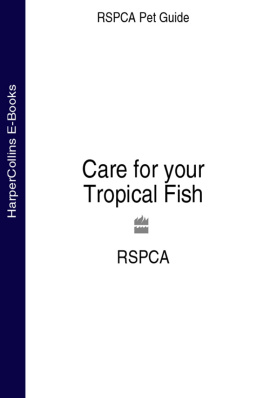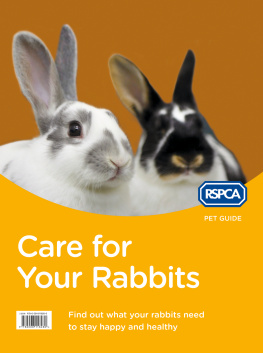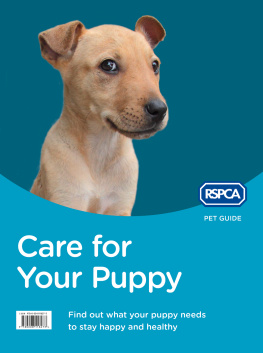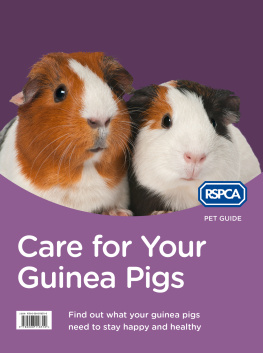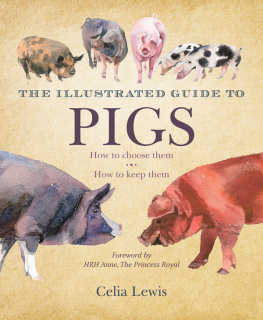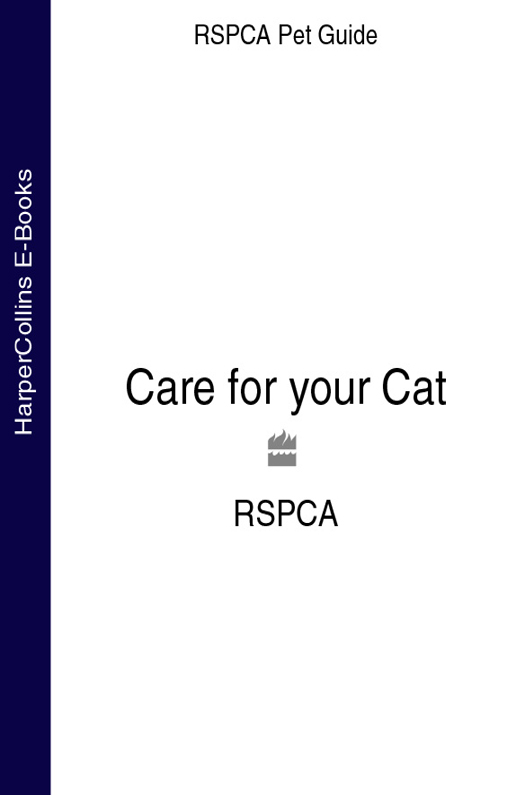Contents

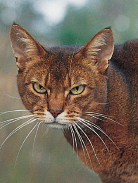
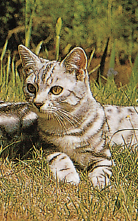
Owning a cat is great fun but a huge responsibility. All animals need a regular routine and lots of love and attention. But most importantly, pets need owners who are going to stay interested in them and committed to them all their lives.
Anyone who has ever enjoyed the company of a pet knows just how strong the bond can be. Children learn the meaning of loyalty, unselfishness and friendship by growing up with animals. Elderly or lonely people often depend on a pet for company and it has been proved that animals can help in the prevention of and recovery from physical or mental illness.
The decision to bring a pet into your home should always be discussed and agreed by everyone in the family. Bear in mind that parents are ultimately responsible for the health and well-being of the animal for the whole of its lifetime. If you are not prepared for the inevitable expense, time, patience and occasional frustration involved, then the RSPCA would much rather that you didnt have a pet.
Being responsible for a pet will completely change your life but if you make the decision to go ahead, think about offering a home to one of the thousands of animals in RSPCA animal centres throughout England and Wales. There are no animals more deserving of loving owners.
As for the care of your pet, this book should provide you with all the information you need to know to keep it happy and healthy for many years to come. Enjoy the experience!
Steve Cheetham MA, VetMB, MRCVS Chief Veterinary Officer, RSPCA

Cats were first domesticated about 4,000 years ago by the Egyptians, and it is known from ancient works of art that have survived from those times that the Abyssinian, with its agouti coat, most resembles the cats of Ancient Egypt.
Cats were not domesticated in Europe before Roman times. In Europe, the Tabbies are thought to have been early mutations, and tabby markings still show on the kittens of the many later breeds that are descended from them.
Today there are about 100 varieties of pedigree cat to choose from, but by far the greatest number of household cats are mongrel. The breeding propensity of the cat, together with its independent lifestyle, makes a very high percentage of mongrel kittens inevitable.
Cats are perhaps the easiest of all the household pets to own, and yet because they are independent, mostly undemanding, largely self-sufficient and good survivors, some owners tend to be more casual and irresponsible about them than any other animal.
The cat is not a good choice of pet for people who are out at work all day; nor is it a good choice for a family living in a house where the cat has easy access to a busy road. You should also recognize that it is irresponsible to allow your cat to mix with others without first having been neutered.

Cats are generally easy to care for and undemanding, but their reputation for being independent does not mean that they can be neglected. Given a good home, they will provide you with many years of rewarding companionship.
Mongrel cats
Most household cats are mongrel, and very often they have been adopted by a family on impulse. Such easily acquired cats may not have been inoculated against the infectious cat diseases, or may not have been wormed. As soon as you acquire one, you should take it to your veterinary surgeon to be examined, and then neutered. It should be understood that although they may cost nothing at all to adopt, once taken into your household they will cost just as much as any other cat.
There is no reason, however, why these mongrel cats should not make delightful companions for us. Many of them are beautiful; all are graceful; and most are affectionate and very easy to care for. Their hardiness depends largely on their background. In general, mongrels are stronger than highly-bred animals of the same species, but if, as often happens with cats, the mongrels are the product of a mating between immature parents, then they and their kittens may be undersized and frailer than most other cats.

Mongrel cats are often hardier and just as appealing as pedigrees.
Pedigree cats
Pedigree cats are usually acquired deliberately, rather than accidentally, and tend to be more carefully supervised than most mongrels. They are perhaps more prone to suffer from over-feeding and lack of exercise.
Their character is an important consideration. The Foreign and Oriental breeds, particularly the Siamese, are untypical of cats in that they are loyal to one person, from whom they demand a great deal of attention in the most vocal way. Some are notorious for being very noisy cats, especially the females when calling, but their undoubted grace and intelligence outweighs this disadvantage for most people. Orientals are also unusual in so far as they will allow themselves to be exercised on a lead.
Longhaired cats, whether pedigree or mongrel, are demanding in that they should be groomed at least once every day. In fact, devotees of longhaired breeds often groom them two or three times a day.
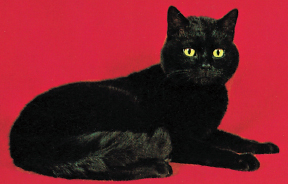
Black British
If pet cats are neutered, then there is little to choose between the sexes; whether they are males or females, they will make excellent pets.
Entire males
An entire male, or tom cat, is usually regarded as unsuitable for most households, as he will spend most of his days searching out female cats on heat, returning home only to sleep and eat. Although a tom may have a pleasing and loving disposition towards people, he will frequently spray his pungent urine in the house to mark out his territory. Some toms will also leave piles of uncovered faeces in the house, as territory markers. Because they spend so much time away from home, they become involved in fights with neighbouring toms over territory or the possession of a female. Such cats soon develop a disagreeable tom-cat smell. Because they fight they are also commonly infected with FIV, the feline equavalent of AIDS (see ). Bites and scratches sustained during their scuffles usually become infected and may result in the formation of large abscesses, needing veterinary treatment.
Unspayed females
Unspayed females, or queens, are considered more suitable as pets, but they are difficult to contain when in season, very tiresome when they call, and likely to produce many litters in their lifetime. For these reasons, the RSPCA recommends that all household cats be neutered.

